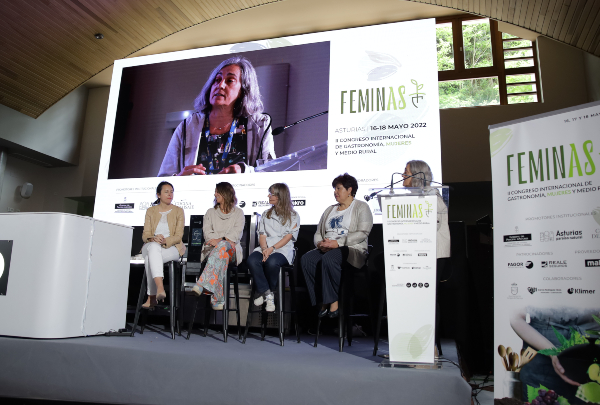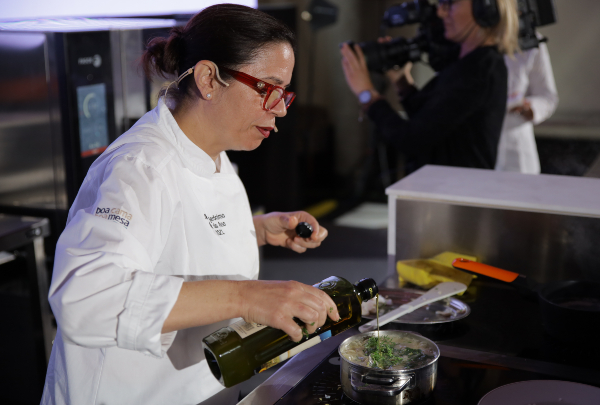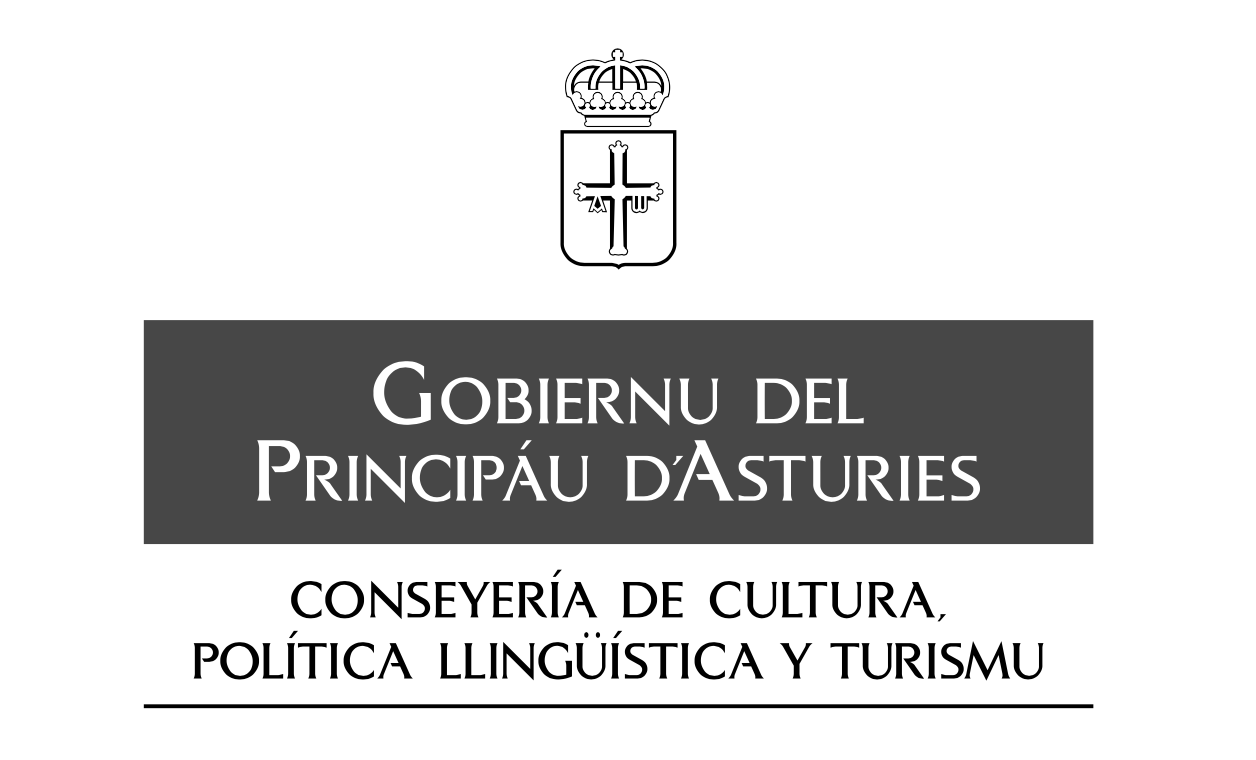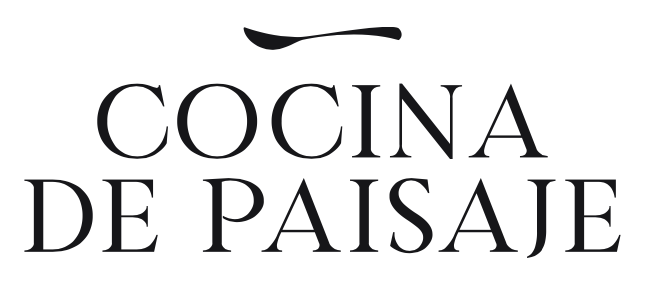News
Arequipa's "picantera" chefs speak out for cookery with respect "for our mothers and grandmothers"
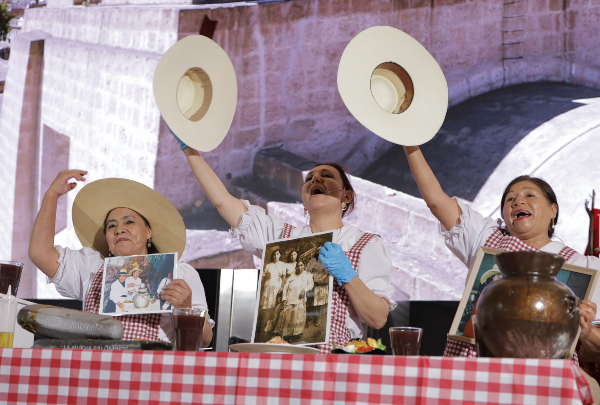
On Tuesday they will be receiving the International "Guardians of Tradition" Award, but they have already furnished all the arguments to show they deserve it. The "picantera" chefs of Sociedad Picantera de Arequipa (Peru) wowed the FéminAs auditorium with their profession, "the way we live", "a secular female profession that has survived with its original characteristics, a hybrid traditional wood-fired cuisine using "batán" grinders", announced journalist Ignacio Medina. A way of understanding cookery "and showing respect for diners and our mothers and grandmothers", added the women.
They were Eran Mónica Huerta (La Nueva Palomino), Beatriz Villanueva (Laurita Cau Cau) and Maruja Ramos de Aguilar (La Maruja), “the heiresses of a tradition that arose from "chicherías", where "chicha" beer was sold, and that eventually developed through "picantes", "chupe" chowder and stews", explained Huerta during the star talk at FéminAs 2022, International Congress of Gastronomy, Women and the Rural Milieu organised by Vocento's Gastronomy Division and promoted by the Principality of Asturias' Subdepartment of Tourism, which began on Monday in Cangas del Narcea.
The Principality of Asturias' Secretary of Culture, Linguistic Policy and Tourism, Berta Piñán, and José Víctor Rodríguez, Mayor of Cangas del Narcea, “a location which, amid today's revolution in the world of wine, is set to be turned into a little Burgundy", according to Benjamín Lana, Head of Vocento Gastronomía, inaugurated an event which on this occasion will focus on part of southwest Asturias. The first day of talks were at the Parador de Corias hotel in Cangas del Narcea, and a visit was also laid on to the Muniellos Nature Park, the Principality's most closely protected natural space, with the event's first meal.
The day's events were digested by attendees. The "picantera" chefs showcooked two recipes typical of their hybrid cuisine ("which we are proud of"), with several main characteristics: no electrical appliances, their utilisation of a "batán" grinder - a river stone fashioned into a crescent shape - and extensive use of "caspeado" chillies (a Quechua word meaning lightly roasted), "huatacay" (aromatic herb) and other "Spanish" ingredients such as onion and garlic.
They ground, talked, cooked and smiled. There was also an essential "picantería" toast to "guiñapo" maize beer, "the blood running through the veins of the picanteras”. This involves a pre-Hispanic technique which also features the "batán" grinder, and it is based on ancient black Creole rice. The result, a fermented beverage to "help with digestion", which they clinked their glasses with at the end of the presentation.
They did so in some very special glasses, as is the tradition, although not in one gulp, which is also traditional. This was because they stopped drinking to sing. “In a "picantería", you start with "chicha" beer and music, and you also finish with the beer and the music". This is respect - which, incidentally, is their term for the husbands of the "picanteras" - and also by way of homage "to our mothers and grandmothers. We learned from them. And they live on in us through cooking. To you, our mothers".
From the "picantera" chefs of Arequipa to the stewmistresses of southwest Asturias
Back across the Atlantic, Asturian stewmistresses Mayte Álvarez Arias (Casa Lula, Tineo) and Ángela Pérez (Casa Emburria, Tineo), and Pepe Ron, from Bar Blanco in Cangas del Narcea, and Pepe Ron, from Bar Blanco, explained the features of cookery in the southwest, "which are totally unrelated to the recipes we usually associate with Asturias. If we ask anyone what the typical fare is in Asturias, they'll probably say "fabada" stew or cider, but neither of them were typical products here. "Pote" stew, marinade stock with trout or salmon were and still are the traditional recipes", said journalist Carlos Maribona.
In addition to "pote", "which will never be good without first-class "compango" meat, according to Álvarez, the territory also has other typical fare such as "chosco", a dry pork cut; eel pastie, or game. Stews are also very common, and also trout, said Ron, who added: "The bigger pieces were marinated, and the smaller pieces were fried. I miss that food. With all the fishing restrictions nowadays, all that's disappearing".
The discussion ended with a door open to innovation in traditional cookery ("That's always possible, but without forgetting where we are and what our surroundings are", they explained), and acceptance of the rejuvenation of stewmistresses. "Mayte and I are the oldest at the present time”, said Pérez. Things look promising in southwestern Asturias.
Cookery from here and there
The "picantera" chefs and the cooking of southwest Asturias were the main course, but there was much more to the first day of the FéminAs congress. The first female chef from Ecuador to earn herself a Michelin star, for example. Carolina Sánchez (Ikaro*, Logroño) presented three ingredients from Ecuador's Amazon, which are "unknown, but have many gastronomic properties, making them superfoods". Among which, "macambo", a superfood with a high content of Omega3 and proteins, and plenty of cooking potential. "The ingredient of the future", she claimed. And from one first star to another first star, Argentinian in this case - Carito Lourenço, demonstrating Argentinian-Valencian cuisine at her Fierro* restaurant (Valencia).
Al-Andalus cuisine
Another traveller of countries sister cultures is Najat Kanaache (Nur. Fez, Morocco), who transformed the stage into an embassy of Andalusian cookery, with colours, smells and tastes conveying us to the splendour of Al-Andalus. In a bid to reconcile two cultures which on occasion have not seen eye to eye, "but which also have many aspects in common", Kanaache explained the need to build bridges. “We should not forget the origins of many items contributed to Spanish gastronomy by the Al-Andalus culture, such as almonds ("where would Galicia's Tarta de Santiago be without them?"), chickpeas ("so typical of those Madrid stews!"), or "alfajor" filled biscuits".
The congress also featured Rosa Macías and Paco Martín, who revealed a few of the secrets of their Bar FM in Granada, one of Spain's product temples. "It's nothing more than unquestionable quality of produce with just one rule: trustworthy suppliers with a proven professional track record", Macías explained. Another secret: the temperature of the griddle and frying oil, "always extra virgin". And finally, the secret of their Russian salad, "one of the five best in Spain" in the opinion of José Carlos Capel. "Cooking the potato in the prawn stock”. Got it.


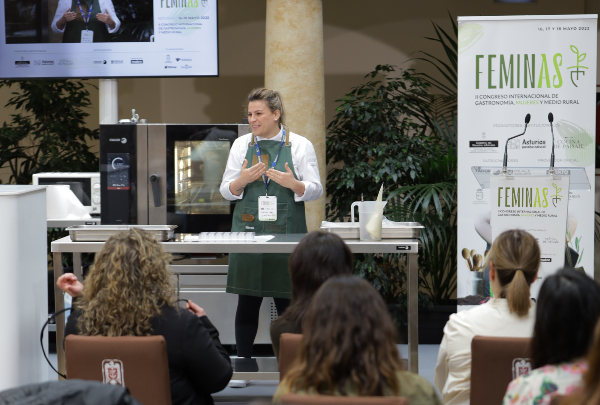

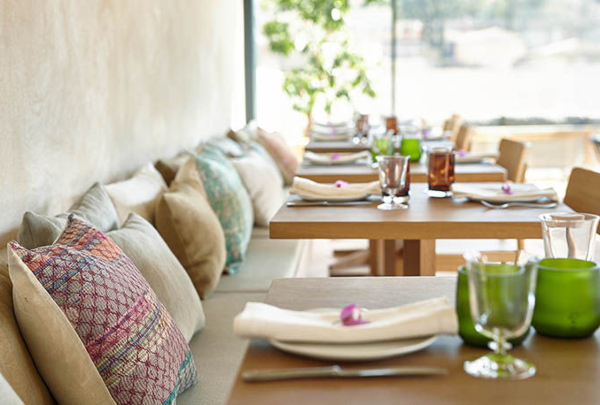
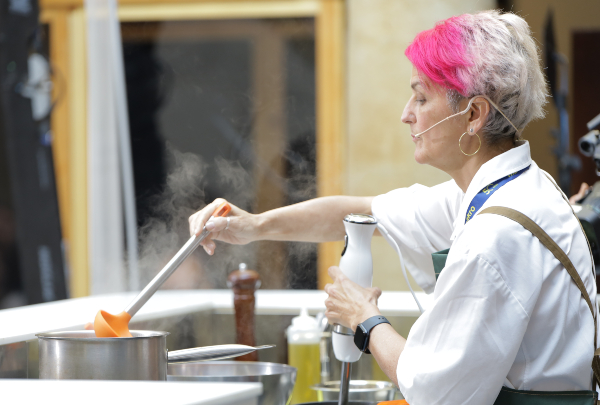
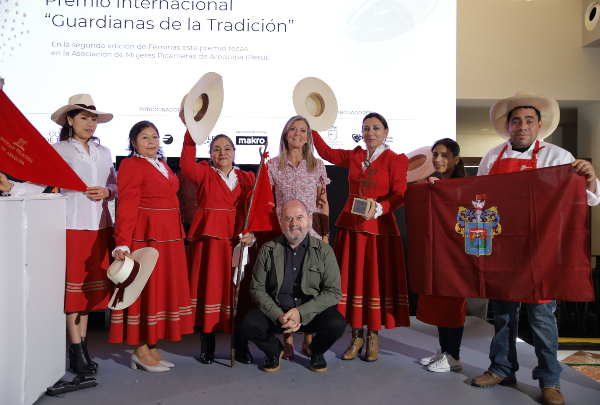
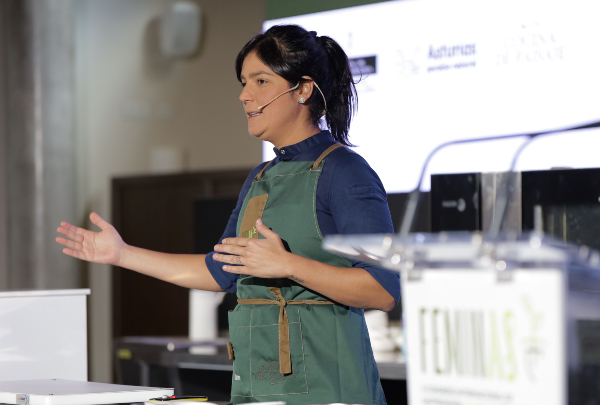
 600.jpg)
